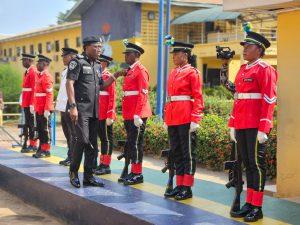“We were inspired by our father to become pilots” – 3 Nigerian sisters share story.
5 min read
“We were inspired by our father to become pilots” – 3 Nigerian sisters share story.
By Naomisophyblog
🌿 Ruzu Non-Alcoholic Herbal Bitters
Ruzu Non-Alcoholic Herbal Bitters is a natural health supplement specially formulated to:
- ✅ Promote general wellness
- ✅ Detoxify the body
- ✅ Support the treatment of various ailments
Made from a powerful blend of 100% organic and medicinal herbs, Ruzu is completely alcohol-free, making it ideal for:
- 👪 All age groups
- 🌱 Health-conscious individuals
- 🌿 Anyone seeking non-alcoholic herbal remedies
Whether you're looking to boost your vitality, cleanse your system, or support healing the natural way, Ruzu Bitters offers a trusted herbal solution.
Many Nigerians have kept singing the praise of three Nigerian sisters who have broken the record to become pilots with different airlines and helicopter companies.
Aside from the glamour and admiration that comes with practising as a female pilot in an area that is mostly dominated by men, these three sisters have sent message of hope, resilience and I-can-do-it spirit to the minds of several female Nigerians with aspirations to pursue their dreams.
While Nigeria seems to be missing out on this great revolution of the emergence of female pilots, Oluwafunmilayo, Oluwaseun & Mopelola Makinde took after their Dad and became pilots just like him.
Hailing from Nigeria, these three sisters have not only shattered stereotypes but have also soared to great heights in their careers as pilots.
According to Black Wall ST Media, the story of the sisters’ journey into the world of aviation was significantly influenced by their father, Captain Wale Makinde, a seasoned helicopter pilot who has dedicated his life to flying.
Makinde with the Nigerian Civil Aviation Authority, where his zeal and commitment to his profession inspired his daughters to follow their father’s steps at a very young age.
Black Wall ST Media has it that Mopelola Makinde, the eldest of the three, vividly remembers being fascinated by her father’s stories of flying helicopters to remote and challenging terrains. As she grew older, the passion for aviation took root in her heart, and she knew that she wanted to pursue a career in the same field. Observing her father’s dedication and commitment, Mopelola realized that gender should never be a barrier to following one’s dreams.
Read Also:PDP finally breaks silence on Wike’s ministerial appointment, reveals next action.
Following in her father’s footsteps, Mopelola embarked on a journey to become a helicopter pilot. With unwavering support from her family, she overcame various hurdles and obtained her pilot’s license. Today, she proudly serves as a skilled and experienced helicopter pilot, shattering stereotypes and inspiring many young women to consider aviation as a viable career path, Black Wall ST Media.
According to Black Wall ST Media, the middle sister, Oluwaseun Makinde, was equally captivated by her father’s profession. Listening to the tales of courage and precision required in piloting helicopters, she was determined to carve her own path in the skies. Oluwaseun’s tenacity and dedication were evident from the early days of her training. Despite facing societal pressures and doubters who questioned a woman’s ability to succeed in such a demanding field, Oluwaseun remained undeterred.
With her family’s encouragement and her father’s mentorship, Oluwaseun soared through her training and earned her wings as a helicopter pilot. Breaking barriers with every flight, she is a role model not only for young girls in Nigeria but also for aspiring female pilots around the world.
“The youngest of the three Oluwafunmilayo Makinde, chose to take a different route while still keeping her feet firmly in the aviation industry. While Mopelola and Oluwaseun ventured into the world of helicopters, Oluwafunmilayo pursued a career as a fixed-wing pilot. Her ambition and enthusiasm were no less than her sisters, and she embraced the challenges of flying with equal zeal.
“Oluwafunmilayo’s decision to become a fixed-wing pilot added diversity to the family’s aviation accomplishments. She exemplifies the fact that there are numerous paths to success in the aviation world, and each one deserves equal recognition and respect, Black Wall ST Media added.
Despite myriads of challenges surrounding the practice of the profession; the reasons there are few women in the profession, these women have continued to prove they can excel in the profession.
Abdulsalami Mohammed, former rector, Nigerian College of Aviation Technology (NCAT), Zaria, had earlier told BusinessDay that it took time before women started developing an interest in aviation as the first female pilot in NCAT was trained in the late 1970s, just as the airline industry also wasn’t employing many females at a time.
“One of the challenges is that pilots are very expensive to train and then you do not stay for long without flying or else you forget, that is why people go for recurrent training. We have to do certain numbers of take-offs and landings within a certain number of days. We also do medical examinations regularly. If a woman gets pregnant, the law says she will stop flying. She will not fly again, until after she gives birth and she is declared medically fit. After she gives birth, she needs to train again before she flies an aircraft. This will take a minimum of 12 months. During this period, the airline she works for will be paying her salary and she has to retrain again after laying off for so long,” said Mohammed.
These factors also affect cabin crew. That is why in the Middle East, for instance, if they are employing a female cabin crew, they make them write an undertaking that they will not get pregnant for a certain period of time. Female children look after their parents more than male children, so I rather invest to train my daughter because she is the one that will look after me in old age than the boys. It is easy for a single man who is a pilot to travel out and work with foreign airlines but females thinking of raising a family, limit how far they can go. Because of these challenges, they do not practice,” he explained.
In a bid to mitigate the huge gap in the number of women practising as pilots in Nigeria, experts suggest that education is key in changing the mindset of females and their parents that the profession is not exclusively for men.
Moses Oyesanya, a professor of Mathematics at the University of Nigeria, Nsukka (UNN), noted that females are not exposed to the aviation sector at their tender age.
“Parents do not think their female children can play in this sector. You see parents talking to their sons to be a pilot but the ladies are not encouraged to become pilots. So, the background of a child matters a lot and this needs to be addressed,” he said.




